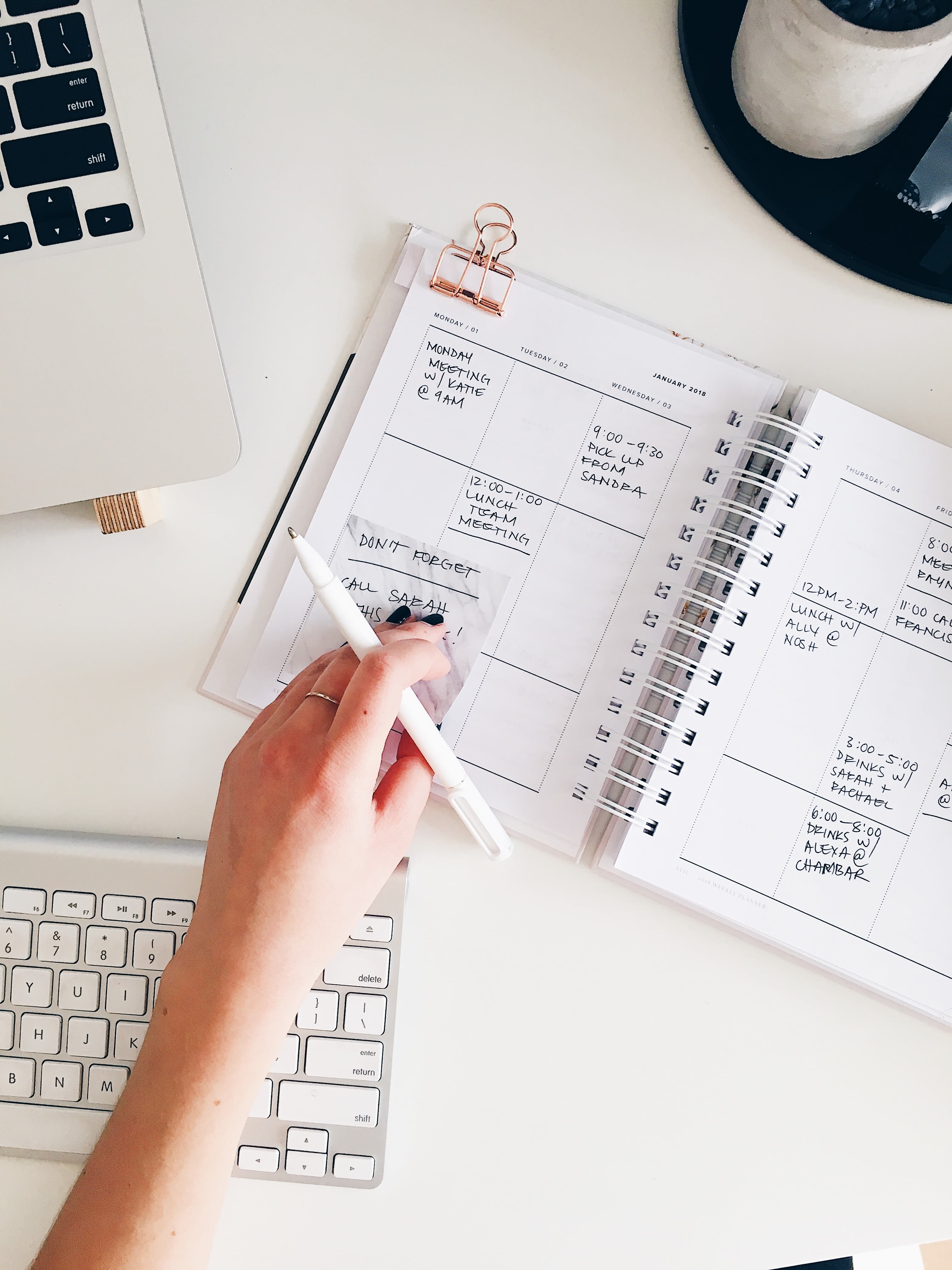Working & Studying: A Juggling Act Made Easier

Working and studying simultaneously is often touted as the pinnacle of productivity, as each minute of your life is spent on something valuable to your future - education or finances.
However, it may be a challenge for some to handle both a career and studying at the same time, and the pressure to keep it up may create a large amount of tension, greatly affecting the lives of the individuals who choose to do so. The stress and anxiety can be felt especially by those who must work while studying out of necessity.
When one area of life becomes too much to handle, it is disheartening to have to drop a job because you're not performing, and need to focus more on your education. Even more so, when the reverse is necessary. So to help, here are some tips for balancing work and study.
1. Have a Sound Plan
The first step to maintaining a good balance between working and studying is to do your research and planning before you get yourself into this situation. Make sure you're prepared with a detailed schedule of when your classes are, assignments are due, and find a job that has complementary working hours. Take full advantage of working from home to maximise flexibility in schedule.
On-campus jobs are a good place to start, and will create less of a clash between your work and studying. Jobs within your academic field may also offer more convenience, as they are linked to your study material, and can offer valuable practical experience.
If necessary and possible, start with part-time jobs to gauge your capability in handling working while studying, and build your organisational skills from there. Another factor to consider when selecting a job to apply for while you study, is the potential for skill development to maximise your employability after graduation.

2. Get Organised
Once you've made your decision, landed the job or enrolled for a particular course, you need to make sure you stay on top of things. Once you have both your work and education schedules down, create a daily routine that will help you get into the swing of things easier.
Block a certain number of hours for studying each day after work. On days which are heavier on classes, set aside a couple of hours to catch up on work if necessary. The weekends are now your best friend when it comes to slotting in extra time to make up for whichever side of the equation (work or study) that you feel less confident about. To keep that crazy work-study-life balance in check, limit the weekends to half days of productivity, and set aside time in the afternoons and evenings to rest.
The more detailed your routine and schedule, the easier it will be to keep track of how much time is spent on each area of your life. Make sure to do a monthly review of your routines and plans to assess what works and what doesn't. Making a habit out of adaptability also better prepares you for any changes to your academic calendar, or work hours.

3. Communication is Key - as usual
It's important to keep your boss at work updated on your schedule, and to reassure them that you are capable of managing your tasks at work. Arranging weekly meetings to assess your progress can go a long way to ensure that you and your boss have clarity and mutual understanding of your situation, and how you're coping. It's also a great way to build your corporate communication skills, and will go along in helping hold down a job.
In the event that you do find yourself unable to cope with the demands of a particular job, it's important to remember that it isn't a sign of defeat. Everyone has different capacities and limits. Pushing yourself overboard will not help you improve in any aspect of maintaining that crucial balance.

4. Health is Definitely Wealth
It can be all too easy to forget to take care of yourself in the midst of balancing work and studies. However, keeping up with your physical and mental health is essential to making sure that you keep functioning at your best.
It is recommended that we all get in 3-4 good sessions of exercise a week, but sometimes we don't have the time and it's understandable. Starting little habits like taking the stairs instead of the elevator, walking to your destinations (when possible), or even setting aside 10 minutes each morning to do a little stretching, can help keep your body more active. You can eventually work your way up to doing full workouts each week. If you're already a certified gym-junkie, keep it up, those sessions will be extra handy for stress relief.
As far as food goes, we know very well the temptation of just surviving on the convenience of snacks and instant noodles, but a healthy diet will lay the foundations for good physical and mental wellbeing. Remember those half-days on the weekends that we can allocate for rest and getting non-work or school-related stuff done? This is when you grocery shop and meal-prep, meal-prep, meal-prep!
Not only will this help your budget, but it'll also set you down a path of eating healthy, conveniently. If you need to supply yourself with little nibbles to cope with stress, try stocking up on one or two different kinds of fresh fruit each week for variety, without the food wastage.

5. Sleep is not for the Weak
So important that we had to make it a point on its own. Establishing a regular sleep pattern is extremely vital to maintaining healthy brain and body functions. A lot of things can go wrong when we stop sleeping at regular timings. A lack of sleep can increase our risks of developing conditions such as hypertension, diabetes, heart attacks, and depression. Obviously, none of these will help you at work or studying.
Notice we said 'regular' and not 'early?' Practically speaking, you're going to be up late often, but as long as you try your best to get a solid 6 hours, at a standard time each night, you're doing well. Of course, being able to sleep earlier and squeeze in some extra hours will be beneficial, but don't beat yourself up if that's not logistically possible for you at the moment. Start where you're comfortable, and make your own progress.

6. Productivity Not Procrastination
When you first start balancing work and studies, it might not be easy to always make the most out of your free time. It can be hard to focus on getting the things you need done, with distractions like social media, and maintaining a social life.
Self-discipline is key, but to make it a little easier, creating separate spaces for specific purposes can help put your mind in the correct zone to complete the task at hand. For example, stick to studying at the library, so your home can become your designated space for work or rest.
The first couple of weeks of the start of the academic year are ideal for experimentation to figure out what works best for you. Utilising study and focus apps like RefMe, Evernote, Forest, and Todoist can help take the dreariness out of taking notes during class, planning your week ahead, and just improve your overall efficiency. It frees up a lot of headspace so you can focus on the important things too.

Working while studying is already a feat in and of itself, and requires a lot of organisation, self-motivation, time management, and flexibility. Whether it's a personal choice, or out of necessity, we're proud of those who make the bold decision to commit to the lifestyle. Be honest with yourself throughout this journey, and make sure that taking care of yourself is still a priority. If you ever need a break from either working or studying, take it: rest is not a sign of failure, but a pause before success.
